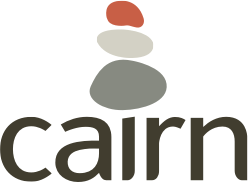Liz Thorne is new to Cairn Guidance as the VP of Policy and Programs. She will be regularly posting on this blog.
I started writing my introductory post many times over the last several weeks. Then, after last Tuesday, I had to start over. Don’t worry—this isn’t another politically charged exposition that has been flooding your inbox and social media feed. But it would be disingenuous of me to ignore the fact that a lot of folks across this country are worried about what the future might hold for them and their families, as evidenced by the increase in calls to the National Suicide Prevention Lifeline and other crisis lines around the country after the election. But this week has also crystalized the importance of our work at Cairn Guidance, and why I am so honored to join Jess and Samantha in the mission of creating healthy school environments where students, staff and communities can reach their full potential. I keep coming back to the following actions:
We need to focus on systems change strategies so all youth can reach their full potential. In public health, we talk a lot about the social determinants of health. The ways in which social forces, like trauma and systemic racism, “get under our skin” to create disparities in health and other outcomes (like graduation rates, suspension and expulsion, incarceration, etc.). The American Public Health Association has been leading a national conversation on ways to dismantle systemic racism. We have to put it on the agenda; identify how the system (policies, procedures, etc) impact populations; and facilitate the conversation to address the problems and move forward. Cairn Guidance has been a leader in facilitating the Systems Thinking, Systems Changing™ and supporting communities to work through the systems change process.
Relationships matter. We know from youth development science that having a connection to a supportive adult can help buffer youth against risk and is associated with better health and better education outcomes. This can be a parent, mentor, coach, teacher or community member. We need to equip teachers and school staff with the resources, skills and supports to create school environments that show every student matters.
Building soft skills. Critical thinking. Empathy. Communication. Working in a team. Seeing both sides of an issue. Typically referred to as soft skills, these are the critical skills young people need for employment, but also engagement as citizens. You see it in schools as students advocating for school policy change based on an experiential learning opportunity like action research; involvement in mentorship programs or community service; or learning to negotiate condom use in health education. These are the skills necessary to build an engaged and aware citizenry.
I know there will be challenges, but I also know that there is amazing work being done across the country. I am thrilled to support and elevate that in my role at Cairn Guidance.

Leave a Reply